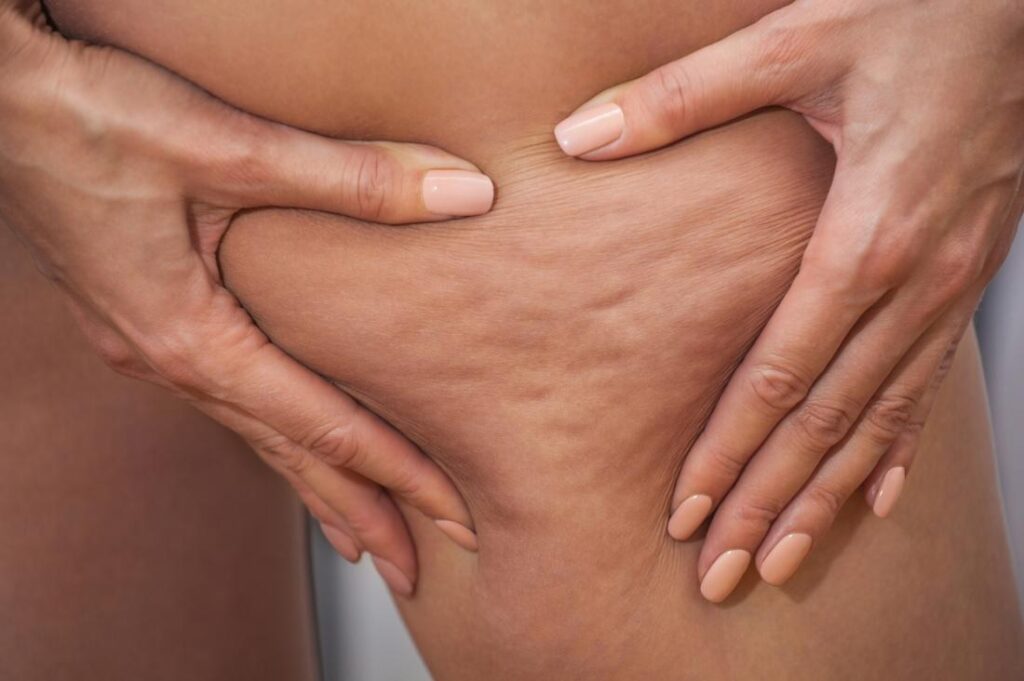
If you’ve ever looked in the mirror and noticed dimples or ripples on your thighs, hips, or buttocks, you’re not alone. Cellulite affects up to 90{302672462803f4a794cd012fb7d5906facc3689117a03c898d4af476f63e6951} of women at some point in their lives—regardless of weight, fitness level, or body type. And while it’s completely normal and nothing to be ashamed of, it’s also perfectly okay to want smoother skin.
That’s where collagen enters the conversation. Often praised for reducing wrinkles and improving skin texture, collagen supplements are now being promoted as a solution for minimizing the appearance of cellulite. But does the science back it up? Can drinkable collagen really make a difference?
Let’s take a closer look at the connection between collagen and cellulite—and how a quality supplement like collagene da bere may help you improve your skin from the inside out.
What Causes Cellulite?
Cellulite occurs when fat deposits push through the connective tissue beneath the skin, creating a dimpled, uneven surface. It’s most common in areas like the thighs, buttocks, and abdomen.
Key contributors include:
- Decline in collagen and elastin with age
- Weakened connective tissue structure
- Poor circulation and lymphatic drainage
- Hormonal changes (especially estrogen)
- Genetic predisposition
- Lifestyle factors such as poor diet, lack of exercise, or smoking
While cellulite is not a medical issue, its appearance is influenced heavily by the condition of your skin and underlying connective tissue—which is where collagen comes in.
Collagen’s Role in Skin and Connective Tissue
Collagen is the main protein that supports skin structure and keeps connective tissues firm, elastic, and flexible. As collagen production naturally declines (starting around age 25), the skin becomes thinner, looser, and less able to hold back fat deposits, making cellulite more visible.
By restoring collagen from within, you can:
- Strengthen the dermal layer, making the skin more resistant to dimpling
- Improve elasticity, reducing the tension that causes fat to bulge through
- Enhance hydration and density, smoothing the skin’s surface
- Stimulate fibroblast activity, encouraging natural collagen and elastin production
The result? Skin that’s thicker, firmer, and better supported—making cellulite less pronounced.
What the Science Says
Recent clinical studies provide growing evidence that collagen supplementation can improve skin quality and reduce visible signs of cellulite:
A 2015 double-blind, placebo-controlled study published in the Journal of Medicinal Food followed 105 women aged 24–50 with moderate cellulite. Those who took 2.5g of collagen peptides daily for 6 months showed a significant reduction in cellulite scores, especially on the thighs. Skin elasticity and density also improved noticeably.
Another review in Nutrients (2021) concluded that oral collagen improves skin structure, hydration, and elasticity, which are key factors in reducing the appearance of cellulite.
While collagen won’t erase cellulite completely (no supplement can), it can enhance skin’s internal support system, making dimples far less noticeable over time.
How Long Does It Take?
Like with all collagen benefits, results are gradual. Most users report:
- Improved hydration and texture after 3–4 weeks
- Smoother and firmer skin around week 6–8
- Visible reduction in cellulite by week 12 or later, with consistent use
Patience and consistency are essential. Collagen works best when taken daily, over several months.
What Type of Collagen Is Best for Cellulite?
To target cellulite, you want a supplement rich in Type I collagen, which supports the skin’s structural integrity. It’s also helpful if the product includes:
- Vitamin C, to boost natural collagen synthesis
- Zinc, to support tissue repair and reduce inflammation
- Hyaluronic acid, to enhance skin hydration and plumpness
- A liquid format, for faster absorption and bioavailability
One supplement that meets all these criteria is collagene da bere, a premium marine collagen formula specifically designed to improve skin tone, texture, and elasticity from the inside out.
How to Maximize Results
To boost collagen’s effects and reduce cellulite more effectively, pair your supplement with these habits:
- Stay hydrated – Water helps transport nutrients and maintain skin elasticity.
- Exercise regularly – Resistance training and cardio improve circulation and muscle tone.
- Eat anti-inflammatory foods – Focus on fruits, vegetables, lean proteins, and healthy fats.
- Dry brushing or massage – Helps stimulate lymphatic drainage and smooth skin.
- Avoid excess sugar and smoking – Both break down collagen and worsen skin texture.
Realistic Expectations
It’s important to keep your expectations grounded. Collagen is not a magic cure, and cellulite is complex. However, what collagen can do is:
- Strengthen and thicken the skin
- Support healthier connective tissue
- Reduce the visibility of dimples
- Improve tone, texture, and firmness
Even a modest improvement can lead to greater confidence and comfort in your skin—and unlike temporary topical creams, the results build over time and last longer.
Final Thoughts
Cellulite is common, natural, and nothing to be ashamed of—but it’s also okay to want smoother, firmer skin. With science-backed benefits and a track record of improving skin elasticity, collagen is one of the most promising supplements available for reducing cellulite’s appearance.
Start with a consistent, high-quality formula like collagene da bere, and support it with healthy lifestyle habits. With time, patience, and care, you can strengthen your skin from the inside—and feel better in every layer.






